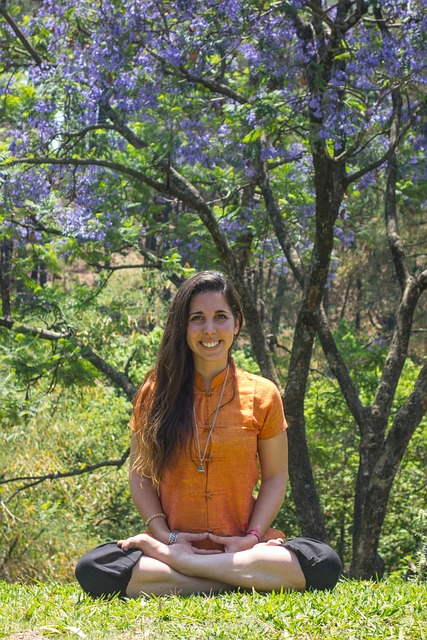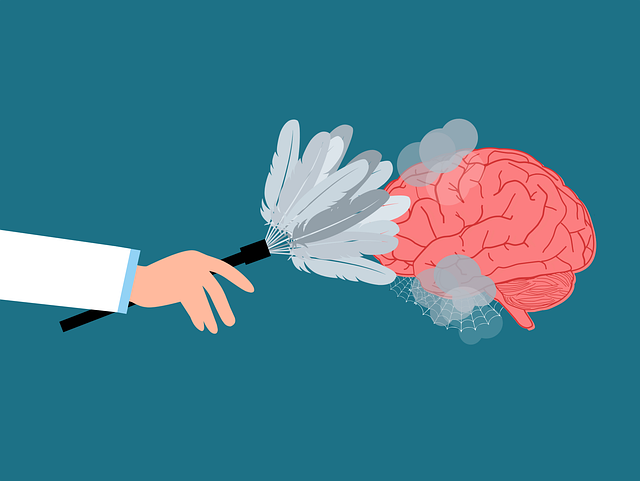Lone Tree Cancer Issues Therapy emphasizes creating safe, supportive environments for mental wellness groups through proven facilitation techniques. This involves clear boundaries, confidentiality guidelines, active listening, and mindfulness exercises to reduce stress and anxiety. Interactive discussions, peer support, and structured activities like meditation enhance open communication and self-awareness, fostering resilience against depression and burnout. Success is measured through participant journeys from vulnerability to resilience, using qualitative feedback and surveys, while robust risk management ensures professional safety and encourages mental health openness.
Explore effective group facilitation techniques for enhancing mental wellness, particularly focusing on cancer-related issues. This article guides you through creating a safe space (Understanding Mental Wellness Group Dynamics), engaging participants (Facilitation Techniques), and offering specific strategies for cancer support (Addressing Lone Tree Cancer Issues Therapy). Learn how to promote healing and measure success (Promoting Healing and Growth) in group facilitation, empowering individuals on their journey towards mental wellness.
- Understanding Mental Wellness Group Dynamics: Building a Safe Space
- Facilitation Techniques for Engaging and Empowering Participants
- Addressing Cancer-Related Issues: Specific Strategies for Group Support
- Promoting Healing and Growth: Measuring Success in Group Facilitation
Understanding Mental Wellness Group Dynamics: Building a Safe Space

Creating a safe and supportive environment is paramount when facilitating mental wellness groups, especially when addressing sensitive topics like cancer issues. In the case of Lone Tree Cancer Issues Therapy, for instance, understanding group dynamics becomes crucial to ensure every participant feels heard and respected. As a facilitator, establishing clear boundaries and rules from the outset fosters trust and encourages open communication. This involves setting guidelines on confidentiality, active listening, and respectful interactions to create a non-judgmental space.
By prioritizing safety, facilitators can help individuals navigate their emotions more effectively. This is particularly beneficial for managing stress and anxiety, which are common in cancer support groups. Techniques such as guided meditations or mindfulness exercises can enhance relaxation and enable members to share their experiences without fear of stigma or criticism. Incorporating these practices not only supports mental health policy analysis and advocacy but also ensures the group’s overall well-being, providing a sanctuary for healing and growth.
Facilitation Techniques for Engaging and Empowering Participants

Effective group facilitation techniques are essential for creating a safe and supportive environment that empowers individuals to navigate their mental wellness journeys. When facilitating a Lone Tree Cancer Issues Therapy group, employing engaging strategies is crucial to foster open communication and promote healing. One powerful tool is interactive discussion prompts that encourage participants to share their unique perspectives and experiences. By asking open-ended questions about their cancer journey, coping mechanisms, or personal growth, facilitators can initiate meaningful conversations. This not only strengthens the bond among members but also provides valuable insights for peer support.
Additionally, incorporating structured activities like Mindfulness Meditation sessions can significantly enhance mental health education programs design. These practices help individuals develop self-awareness and coping strategies to manage stress and anxiety. Facilitators can guide participants through simple breathing exercises or body scans, encouraging them to focus on the present moment. Such communication strategies create a sense of calm and allow individuals to explore their thoughts and emotions in a safe space, ultimately contributing to improved mental wellness outcomes.
Addressing Cancer-Related Issues: Specific Strategies for Group Support

When facilitating a mental wellness group for individuals dealing with cancer-related issues, it’s essential to employ strategies that cater to the unique challenges they face. Many cancer survivors struggle with feelings of isolation, fear, and anxiety, which can often lead to depression and burnout. Thus, creating a supportive environment is paramount. Techniques such as sharing personal stories in a safe space, fostering open discussions about coping mechanisms, and encouraging peer-to-peer support can significantly enhance the therapeutic process.
One effective strategy is integrating activities that promote inner strength development. This could involve mindfulness exercises, meditation practices, or even creative outlets like art therapy. By engaging participants in these activities, facilitators can aid in depression prevention and burnout prevention while helping individuals discover their resilience. Tailoring the group’s focus to address Lone Tree cancer issues through these specific strategies ensures a comprehensive approach to mental wellness care.
Promoting Healing and Growth: Measuring Success in Group Facilitation

In the realm of mental wellness group facilitation, promoting healing and growth among participants is a delicate yet rewarding process. Success in this context isn’t merely about achieving a specific outcome but rather fostering an environment that encourages self-discovery, resilience, and emotional well-being. Facilitators play a pivotal role in guiding individuals navigating various challenges, such as Lone Tree Cancer Issues Therapy, through shared experiences.
Measuring success in group facilitation involves observing participants’ progress, from their initial vulnerability to the eventual development of coping mechanisms. This transformation can be assessed through qualitative feedback, participant testimonials, and quantitative methods like pre-post surveys. By incorporating Emotional Well-being Promotion Techniques, facilitators can gauge improvements in stress management, enhancing overall mental wellness. Moreover, regular risk management planning for mental health professionals ensures a supportive and safe space, allowing individuals to explore their mental health openly, ultimately contributing to the success of the group facilitation process.
Group facilitation techniques for mental wellness play a pivotal role in creating supportive environments, especially when addressing sensitive topics like cancer-related issues. By understanding group dynamics and employing engaging strategies, facilitators can foster healing and growth among participants facing similar challenges. The techniques discussed, tailored to address Lone Tree Cancer Issues Therapy, emphasize the power of safe spaces and empowering interactions. Through successful facilitation, groups become dynamic tapestries of support, whispering encouragement as members navigate their journeys, ultimately revolutionizing mental wellness care.












